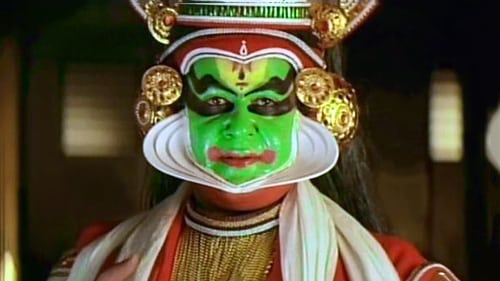
Gopalakrishnan's father
Petty thief Gopi steals a chain, and in order to escape a police inspector, drops it in Veena's bag. Later, he tries to take it from her, but the chain is no longer there. He becomes a part of her plan to stop her boyfriend from marrying a rich tycoon’s daughter

Vishnu Narayanan Namboothiri
Nadan Pennum Natupramaniyum is a 2000 Indian Malayalam film, directed by Rajasenan. The film stars Jayaram, Samyuktha Varma, Srividya and Jagathy Sreekumar . The film had musical score by A. B. Murali.

Thirumeni
Kunhikuttan, a famous Kathakali dancer, meets Subhadra, a woman from an upper caste family, who falls in love with his character rather than himself.

Bishop
The film ‘Bosco’ portrays the heart-capturing life sketch of one of the most popular saints of the last millennium – Don Bosco.

Payyarathu Padmanabhan Nair
Payyarathu Padmanabhan Nair(Kalamandalam Kesavan), who is a well known personality is Praised by the people. He lives precedence life with his whole family members(Kootukudumbam), his Friend Reeve Sankunni(Oduvil Unnikrishnan) and Servant Kuttan(Kalabhavan Mani). He loves his family more than his life but they eyes on his wealth. On the day of his niece Meenakshi's wedding day he meets with a young man Ramanathan(Jayaram). Ramanathan be friends with him and Padmanabhan Nair likes Ramanathan's qualities. It was later revealed that Ramanathan is the son of Padmanabhan Nair and Sankunni's younger sister Saudamini. Slowly Ramanathan gets into the family to stay with his father.

Mahadevan and his uncle Kumar are still struggling to find money after the deaths of Mahadevan's parents and Kumar's sister. One day, luck comes to them when Mahadevan wins a car as the 1st prize of a promotional contest held by a washing-powder brand. The new car brings him a lot of bad luck.

Panicker's one-act play deals with the relation of identification between an actor and his or her role. The action takes place on the eve of the last act of the Kathakali piece Keechakavadham (The Killing of Keechaka). The events surrounding the performance uncannily echo events in the play. One character even claims to have killed the lead actor of the play because he detested the character the man portrayed. However, the three different accounts that are presented of the same plot are never resolved or reconciled with each other. Each version is accompanied by a different style of folk music: the tune and rhythm of southern Kerala’s thampuran pattu, the pulluvan pattu and the ayappan pattu. The performers were drawn from the theatre and from Kathakali. In southern India, with its plethora of politicians using their film images to acquire inordinate wealth and power, Aravindan’s TV film bears on an eminently sensitive political as well as aesthetic issue.






